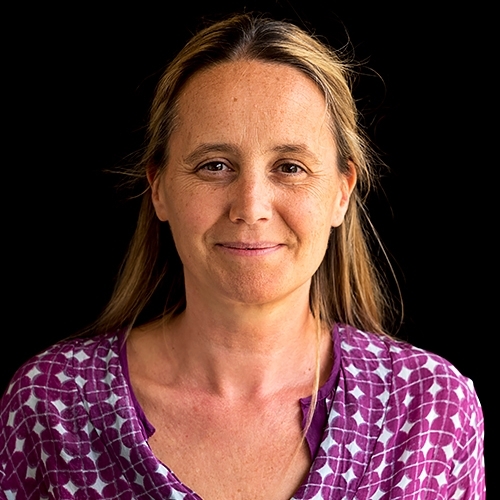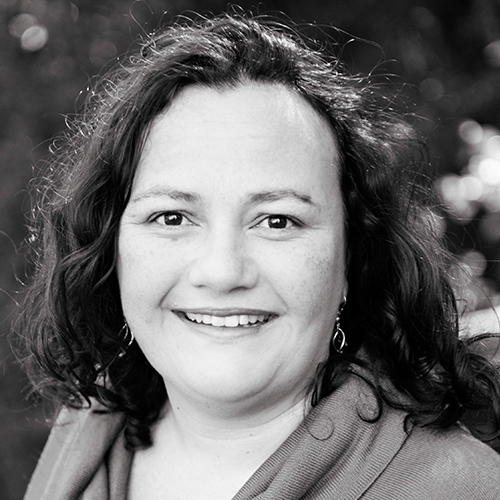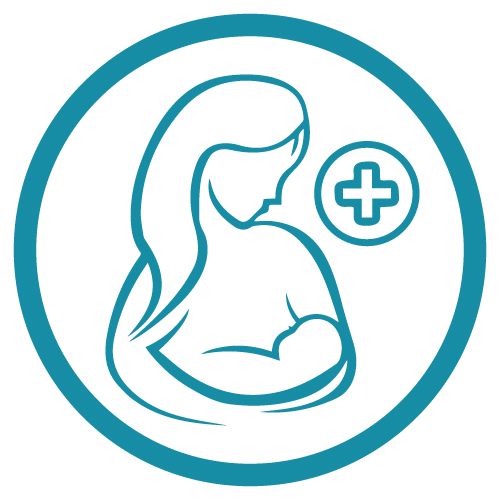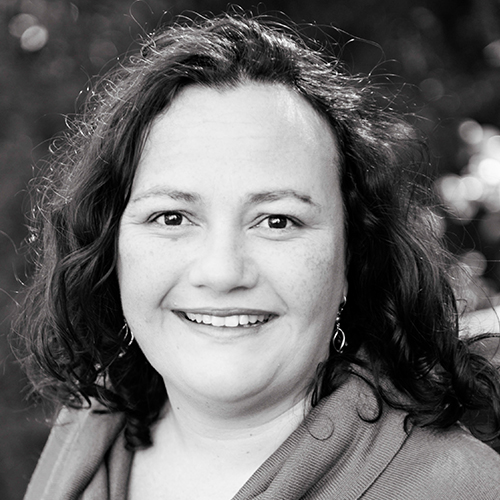 IBCLC Detailed Content Outline: Psychology, Sociology, and Anthropology Focused CERPs - Section V
IBCLC Detailed Content Outline: Psychology, Sociology, and Anthropology Focused CERPs - Section V
Access CERPs on Psychology, Sociology, and Anthropology for the IBCLC Detailed Content Outline recertification requirements. Enjoy convenient on-demand viewing of the latest Psychology, Sociology, and Anthropology focused IBCLC CERPs at your own pace.

Early Vocal Contact Between Parents and Preterm Infants in the Neonatal Intensive Care Unit

Manuela Filippa is researcher at the Geneva University. She received her PhD in Developmental Psychology at the University of Paris Ouest Nanterre, she studies the effects of the Early Vocal Contact - maternal direct speech and songs - on premature infant’s development in collaboration with international research centers. She is a Musician by training, she teaches Psychology of Music and Music Education at the University of Valle d'Aosta, Italy. She became an expert in the field of early interventions in at-risk populations. Her scientific works were published in a number of international journals, in a dedicated book on Early Vocal Contact and, lastly, in a Special Issue of National Geographic, January 2019.
Early Vocal Contact aims to enhance closeness between preterm infants and their caregivers, principally through the medium of the voice. The specific aims of this presentation are;
(1) to give evidence the special orientation that newborns have towards the maternal voice;
(2) to explore the literature on the effects of the maternal voice on preterm infants in the neonatal intensive care unit;
(3) to identify and to describe the mechanisms through which early vocal contact acts as an early, family-based intervention for preterm infants and;
(4) to suggest some final recommendations for clinical practice.
Encouraging live vocal contact, with preterm infants, far from being only a sensory/acoustical stimulation, can activate a number of related and consequential actions (intuitive parenting, multimodal co-regulation, reciprocal synchronisation). These normal actions in full-term birth are at the foundation of bonding and attachment processes and can lead to long-term and sustained positive effects on the development of preterm infants.

View Details / Enroll

Eating Disorders in the Perinatal Client: A Trauma Informed Model

Kristin is a Licensed Clinical Social Worker and IBCLC in private practice in central NJ. Her practice specialties are low supply, maternal and infant mental health, and the intersection of ethnicity, sexual orientation, and gender in the care of the new family. She has spoken on various lactation, mental health, and equity topics for USLCA, the Lehigh Valley Breastfeeding Association Conference, the Appalachian Breastfeeding Conference, LPPEC, LC in PP, and for LLL of the Garden State. She designed and taught a training course on Mental Health First Aid for Perinatal Providers. She has been a featured speaker on several lactation related podcasts.
She is the mother of two children who nursed full term despite maternal IGT, and who are now 16 and 13. She is an anti racist LGBT+ activist, a member of transformative works fandoms, and makes fighting for a better world part of her daily life.
As lactation professionals, we see clients who are experiencing many challenges during the perinatal period. Clients with eating disorders are uniquely at risk, as are their babies. This presentation will educate the perinatal professional about how eating disorders present in the childbearing year and beyond. It will explore the connection between trauma and disordered eating, and teach how to be a trauma informed provider for eating disordered clients. It will discuss the specific and unique challenges the person with an eating disorder may have during lactation, including postpartum body image, elimination diets, and provider bias. The learner will gain the skills needed to screen for disordered eating and provide culturally humble and appropriate referral for congruent care.


Sarah Reece-Stremtan MD is an associate professor of pediatrics and anesthesiology at the George Washington University in Washington DC. Her clinical practice is centered at Children's National Hospital in DC, where she works as a pediatric anesthesiologist, acute pain physician, and acupuncturist. She has particularly strong interests in perioperative preservation of breastfeeding, with specific expertise in safety of anesthesia and analgesia medications used by breastfeeding mothers. She has spoken at Congressional Briefings on the need for enhanced research into the use of medications by breastfeeding and pregnant women, and sits on working group #4 within a federal task force developed to enhance Research Specific to Pregnant Women and Lactating Women (PRGLAC).
She has long been involved with the Academy of Breastfeeding Medicine, authoring multiple clinical protocols, chairing various committees, and most recently serving as Treasurer for 2 terms after 5 years as a member of the Board of Directors.
Many women plan to use various pain medications during labour, with epidural analgesia being the most common type of pain relief utilized in many North American hospitals. Medications used for pain relief during labour cross transplacentally to the infant, with varying effects demonstrated on infants and mothers with regards to breastfeeding. Here we will take a closer look at what is involved in pain transmission signals, the medications that help with pain relief during labour, and the effects of these medications on initiation of breastfeeding. We will discuss issues relating to cesarean delivery, and we will also spend a little time at the end reviewing considerations around general anesthesia for breastfeeding mothers.

Empowering Breastfeeding in Women Receiving Medication-Assisted Treatment for Opioid Use Disorder: A Call for Policy Change

Dr. Kelly McGlothen-Bell is an Assistant Professor at UT Health San Antonio, School of Nursing. As a nurse scientist, Dr. McGlothen-Bell is dedicated to understanding and resolving perinatal-infant health disparities in underrepresented groups, particularly among mother-infant dyads impacted by substance use disorders and preterm births. Dr. McGlothen-Bell uses interdisciplinary research, bio-behavioral methodologies, and community-engaged strategies to define and explore health priorities that can be remedied through culturally appropriate and sustainable health solutions. Her program of science focuses on understanding the relationship between infant feeding behaviors and readiness in high-risk infants and attunement between the primary caregiver and child during infancy and toddlerhood. The culmination of these findings contributes to the development of evidence-based interventions geared toward improving parental engagement and pediatric feeding success in marginalized populations. Dr. McGlothen-Bell has published numerous peer-reviewed articles related to developmental strategies for high-risk infants. She has also presented her work at conferences nationally and internationally. Dr. McGlothen-Bell has received numerous awards to include the 2019 National Association of Neonatal Nurses (NANN) Mentee/Mentor Grant Award. She was also selected as a 2019-2020 Academy Jonas Nurse Policy Scholar.
Topic: Feeding Behaviors in the Opioid Exposed Infant - [View Abstract]
Inequitable access to mother's milk often disempowers those who may benefit the most from it's' benefits. Moreover, suboptimal breastfeeding has the potential to negatively impact the health and well-being of future generations to come. Mother's own milk is internationally accepted as the most optimal source of nutrition for infants, yet breastfeeding initiation and duration rates among minority populations (i.e., women with opioid use disorders [OUDs]) continue to lag significantly behind that of the general population. The implications of the current U.S. opioid crisis and its increasing influence on women of reproductive age presents important considerations for the ways women and infants may receive inequitable access to breastfeeding and the benefits of mother's milk. In this presentation, learn the keys needed to empower lactation support providers to advocate for the use of scientific evidence that informs breastfeeding practices for women receiving MAT for OUD.

View Details / Enroll

Enhancing Caregiver Attachments Through Imaginative Play and Emotional Storytelling

Althea T. Simpson, MBA, MSW, LCSW, RPT-S, is an innovative trainer, psychotherapy private practice owner, founder and President of Unicorn Life Training and the Black Play Therapy Society, and host of the Chronicles of A Play Therapist podcast. She is the author of Hurt to Healing: Child Witnesses of Domestic Violence and Their Invisible Injuries. Althea has a diverse background including research, mental health, and organizational consulting. A Certified LEGO® SERIOUS PLAY® Facilitator reinforcing a process of creative thinking and problem-solving, Althea facilitates thought-provoking and experiential skill enriching workshops for mental health professionals, corporations, and organizations throughout the United States. Althea’s passion is utilizing the healing powers of play to effect change on an individual and organizational level.
IG: @altheatsimpson
IG: @brickmagicplaytherapy
Facebook: https://www.facebook.com/unicornlifetraining
Twitter: @altheatsimpson
TikTok: @altheatsimpson
Youtube: https://www.youtube.com/channel/UCexheSp4-M-A-sW5w1aU5eQ
Play is an important milestone for babies and toddlers as it helps with development and reasoning skills. Play also holds a crucial role in providing a safe, caring, and protective attachment relationship between caregiver and child. Through pretend play, caregivers can help children express thoughts and emotions. Emotions are responses to different stimuli and children can learn appropriate ways to work through their emotions. Through storytelling caregivers can help children identify emotions without labeling emotions as “good” or “bad.” Caregivers who engage children in reading and storytelling promote brain development and imagination, develop language and emotions, and strengthen relationships. Learn more about the importance of play, the stages of development and how play works before language and memory are developed and examples of activities that encourage imaginative play.


Dr. Hawes provides clinical services in the Neonatal Intensive Care Unit and at the Perinatal and Postpartum Clinic at the Center for Children and Families at Women & Infants Hospital, where she treats women and their partners experiencing perinatal mood and anxiety issues. Treatment includes individual and family psychotherapy. She is an assistant professor (adjunct) in the Department of Pediatrics at The Warren Alpert Medical School of Brown University. She trained in adult psychiatry and mental health at the University of Rhode Island and is board certified in adult psychiatric-mental health advanced practice nursing. Her research, clinical work, and lectures focus on stress and trauma related to the premature birth experience. In addition she studies the relationship between nursing practice and parent and infant outcomes; nurse-patient interaction; the healthcare work environment and provider and patient outcomes; and the epigenetics of stress. (https://vivo.brown.edu/display/khawes).
Classic animal studies have shown that maternal care of rat mothers e.g. licking and grooming and arched back nursing, impacts offspring outcomes such as behavior, development, and stress regulation. These outcomes persist over subsequent generations. Epigenetics, the study of how environmental influences affect gene expression, mediates these effects. In this session we will discuss and explore how similar epigenetic mechanisms in humans possibly relate to the protective effects of breastfeeding and maternal tactile stimulation on infant stress reactivity.

Establishing Breastfeeding and Bonding in the Post COVID Hospital Setting

Tanya Singleton is a registered nurse with over 40 years of experience in Maternal-Child nursing as a Labor and Delivery nurse, certified in High-Risk Perinatal nursing, an IBCLC lactation consultant and Lamaze childbirth educator. She retired as United States Army Nurse Corp officer in 2003 and began working in private practice as a lactation consultant and childbirth educator. She has run several community non-profits in the Fredericksburg, Virginia area that dealt with issues related to women's and children's health promotion and illness prevention. She is immediate past Chair of the State of Virginia Breastfeeding Advisory Committee, and is currently Chair of Postpartum Support Virginia Board of Directors.
Tanya is committed to quality education and lifelong learning, and has taught maternal-child and pediatric nursing to students in the Rappahannock Region of Virginia, sharing her various clinical anecdotes in classroom and in labs. She is an advocate for equity in maternal healthcare for women of color and early detection of perinatal mood disorders. She is owner and proprietor of The Baby Whisperer, providing in-home support in childbirth education, breastfeeding and parenting.
She is the mother of a blended family of five adult children and Nana to four.
Topic: Establishing Breastfeeding and Bonding in the Post COVID Hospital Setting - [View Abstract]
Topic: How to be Part of the Solution: The Effects of Intergenerational Trauma on Perinatal Persons of Color - [View Abstract]
Since the beginning of recorded birth experiences, babies have been placed in their mother's arms immediately after birth. At the turn of the 20th century, hospital births began to become the norm, and "sterile" procedures removed the immediacy of this critical juncture. What does 21st century hospital birth hold in this post-pandemic healthcare environment? ? How do we promote, protect and enhance the birth experience in Labor and Delivery to support bonding and breastfeeding?


Dominic Wilkinson is Director of Medical Ethics and Professor of Medical Ethics at the Oxford Uehiro Centre for Practical Ethics, University of Oxford. He is a consultant in newborn intensive care at the John Radcliffe Hospital, Oxford. He also holds a health practitioner research fellowship with the Wellcome Trust and is a senior research fellow at Jesus College Oxford.
Dominic has published more than 130 academic articles relating to ethical issues in intensive care for adults, children and newborn infants. He is co-author (with Julian Savulescu) of ‘Ethics, Conflict and Medical treatment for children, from disagreement to dissensus’ (Elsevier, 2018). He is also the author of 'Death or Disability? The 'Carmentis Machine' and decision-making for critically ill children' (Oxford University Press 2013) ("the best book of the decade in bioethics... this is a book that must be read by everybody who is seriously interested in the bioethical issues that arise in neonatal intensive care or, more generally, in decision making for children with chronic, debilitating or life-threatening conditions." (John Lantos, Notre Dame Philosophical Reviews). He was Editor and Associate Editor of the Journal of Medical Ethics from 2011-2018.
Neonatal intensive care frequently gives rise to challenging ethical questions, particularly when there are decisions to be made about starting or stopping potentially life-sustaining medical treatment. In this talk, I will cover three common and important questions relating to neonatal end of life care. When is it ethical to allow a newborn infant to die? How should decisions be reached about providing or discontinuing life-sustaining treatment? What decisions or actions are ethical (and unethical) as part of the end of life care of a newborn infant?

View Details / Enroll

Exploring Bias and Racism in Sexual and Reproductive Health Care in Remote Canada: A Collection of Stories

Heather is a Métis Midwife from Winnipeg, Manitoba. She studied midwifery at Laurentian University, focusing on rural and remote practice. Heather practiced midwifery at the Seventh Generation Midwives Toronto for two years before moving to Hay River, Northwest Territories to establish a Midwife practice and help return birthing services to the community. Heather is now living and working in Yellowknife, Northwest Territories and is president of the Midwives Association of the Northwest Territories and is a Core Leader of the National Aboriginal Council of Midwives.
Systemic racism and bias of individuals in healthcare has a significant impact on the health and well-being of clients/patients, care providers, and communities.
The Canadian midwifery model of care is well-suited to mitigate some of the disparities caused by bias and racism in sexual and reproductive health care. It is also not impossible for well-intentioned midwives to contribute to, and uphold the systems that discriminate.
Drawing from her lived experience as a Métis midwife, Heather will share anecdotes and stories that illustrate the stark differences between communities where there is no access to midwifery care, compared to a community with access. She will explore ways that systemic racism is manifest within sexual and reproductive health care in Canada, and the impacts on patients/clients, healthcare providers, and communities.
Strategies to mitigate these negative impacts must be led by the communities that experience them and supported by others who work and live with these people. A strengths based, community-led approach must be taken. This requires taking a deep look within ourselves and the systems that we work in to understand the breadth of the problem that we face.
Participants will leave the presentation with concrete steps they can take to help combat racism and work towards dismantling systems that contribute to ongoing oppression.

View Details / Enroll


Debby Gould is a ‘BirthCare’ consultant providing education, support and counsel to women, partners, families and health professionals. Her goal is to provide transformational care to support education, empowerment and healing. She is an author of the book, ‘How to Heal a Bad Birth – Making Sense, Making Peace & Moving On’ and Co- Director of Birthtalk.org. Originally, a registered nurse she further trained and worked as a midwife, and is now a birth; educator, worker and counsellor, international author, speaker and mother of two children. For over twenty years she has supported women and men in the journey to healing after a traumatic birth, enabling women to make sense of their experience and its impact, offering hope for healing, and providing support and tools to process and make peace with what happened. She has shared in receiving the honour of a Lord Mayor’s Australia Day Community Achievement award for this work. Debby has been Birthtalk’s primary educator and facilitator of Healing From Birth meetings. She has presented for the ACM, Hypnobirthing Australia, Capers, Homebirth Australia, Australian Breastfeeding Association and various other maternal health and midwifery conferences. She guest lectures to Bachelor of Midwifery students at several Universities, and gives presentations for The Australian Doula College, Friends of the Birth Centre, Red Tent festival and other community groups. She also provides professional development for hospital midwives and doulas on the topic of Birth Trauma and how to support women to heal and have better births. She has co-written articles for Birthtalk’s blog “The Truth About Traumatic Birth” and has appeared in the media including radio, newspaper, birth and parenting magazines and podcasts and in the recent birth documentary ‘Birth Time’ as an experienced health professional’s voice to the issue of the importance of birth and traumatic birth.
Traditionally, an outcome focus has often been considered as the measure of ‘success’ in birth. When it comes to consent, that outcome tends to be ‘a live healthy baby’ and ‘the authority to do what is deemed desirable or necessary’. Considering an epidemic of birth trauma and the associations with the #metoo movement in birth, it is evident that this is not success for women and families. It is a narrow and damaging view that needs to be explored, understood, and changes made. The process of consent is valued, tangible, ethically and legally sanctioned, and provides key moments in care, to incorporate such change. A paradigm shift around consent is vital to address the experiences of assault and trauma in perinatal care. Conversation with families about consent is also a potential starting point to consciously address and intervene in damaging processes, and improve experiences, that could then be normalized and ripple out across all care delivery. Practical measures around consent and care processes will be explored with the aim to offer an intervention, when used consistently, to break the human mode of transmission of birth trauma, metaphorically, much like handwashing in our current pandemic.

View Details / Enroll



















